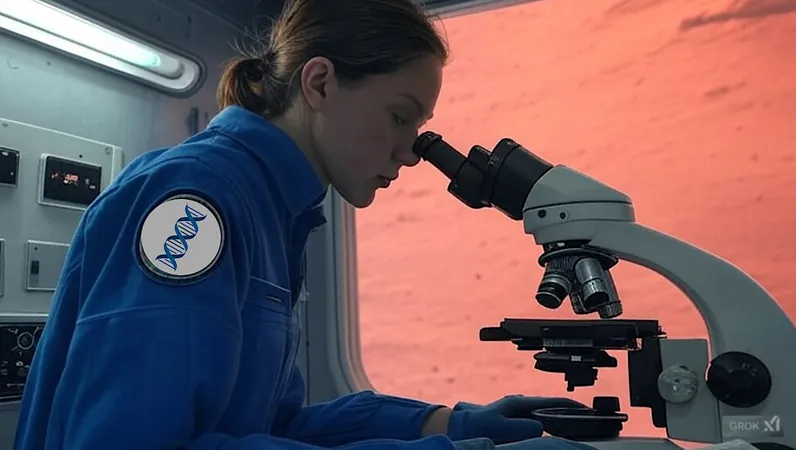
NASA's Groundbreaking Space Research: Key Findings and Innovations
2025-04-15
Author: Ming
Exploring Astronaut Ocular Changes After Spaceflight
Recent research from NASA has shed light on significant ocular changes experienced by astronauts aboard the International Space Station (ISS). A study analyzed pre-flight and post-flight eye metrics of 29 astronauts, assessing various factors such as refractive changes and biometric measurements. With data collected from 56 eyes, the study employed advanced statistical methods to explore the correlations between these changes and factors like optic disc edema and duration in microgravity. This pioneering work is a vital step toward understanding and mitigating space-related vision hazards.
Corneal Health Risks in Microgravity
A critical review highlights the risks of permanent corneal injury associated with prolonged spaceflight. The article discusses the challenges of restoring vision for astronauts after extended missions and emphasizes the role of biotechnology in addressing these complications. As humanity aims for long-term planetary exploration, understanding ocular health in microgravity becomes crucial.
NASA's Dynamic Team Strategies for Space Missions
In a fascinating study, researchers collaborated with NASA to enhance team dynamics during space missions. By forecasting potential challenges, they aim to improve communication and efficiency among astronauts, ensuring mission success as we venture further into the cosmos.
Innovative On-Chip Monitoring of Health
Exciting advancements in bioengineering techniques were unveiled with the introduction of a new automated sensing platform capable of monitoring epithelial and endothelial barrier functions on-chip. This innovative technology promises to revolutionize the characterization of biological responses under spaceflight-induced inflammation, propelling the field of organ-on-a-chip research.
Addressing Astronaut Injuries: A Cautionary Tale
A retrospective analysis has uncovered a concerning increase in shoulder injuries among astronauts after missions longer than six months. Utilizing NASA's extensive health database, this study emphasizes the need for improved physical monitoring and preventive measures to safeguard astronauts’ health during extended space missions.
Uncovering the Mysteries of Space Medicine
In a series of reviews and articles, researchers delve into the complexities of space medicine. From the effects of sleep deprivation on the glymphatic system to the role of mitochondrial proteins in heart disease, each study provides crucial insights into how the human body adapts (or struggles) in the unique environment of space.
Promoting Sustainable Aerospace Technologies
A recent editorial has called for a sustainable approach in developing aerospace materials, urging innovations that balance performance with environmental impact. This forward-thinking strategy endeavors to pave the way for a greener future in space exploration.
The Future of Space Research: A Collaborative Effort
NASA continues to pioneer research that not only enhances our understanding of human health in outer space but also fosters collaborative innovations across various scientific disciplines. As space exploration becomes increasingly ambitious, these insights will be vital to ensuring the safety and efficacy of human missions beyond Earth.



 Brasil (PT)
Brasil (PT)
 Canada (EN)
Canada (EN)
 Chile (ES)
Chile (ES)
 Česko (CS)
Česko (CS)
 대한민국 (KO)
대한민국 (KO)
 España (ES)
España (ES)
 France (FR)
France (FR)
 Hong Kong (EN)
Hong Kong (EN)
 Italia (IT)
Italia (IT)
 日本 (JA)
日本 (JA)
 Magyarország (HU)
Magyarország (HU)
 Norge (NO)
Norge (NO)
 Polska (PL)
Polska (PL)
 Schweiz (DE)
Schweiz (DE)
 Singapore (EN)
Singapore (EN)
 Sverige (SV)
Sverige (SV)
 Suomi (FI)
Suomi (FI)
 Türkiye (TR)
Türkiye (TR)
 الإمارات العربية المتحدة (AR)
الإمارات العربية المتحدة (AR)